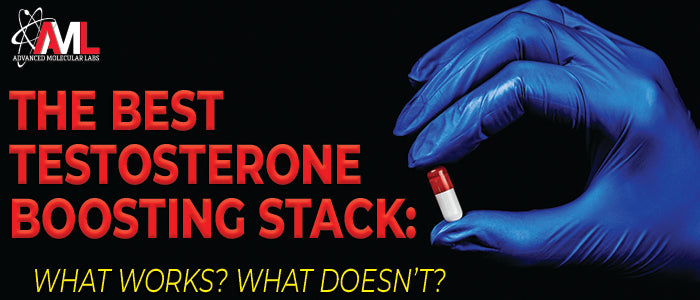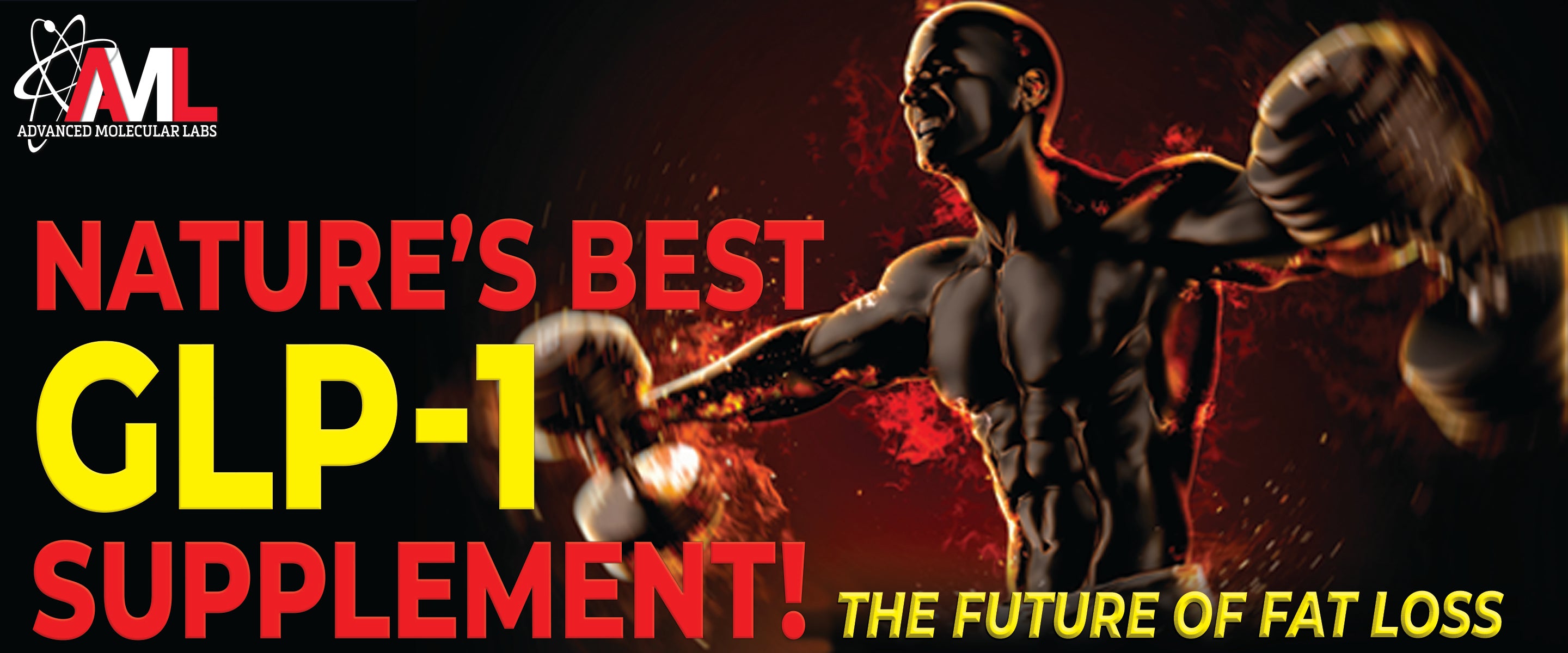


Best Post Workout Supplements for Muscle Growth and Recovery!
By Steve Blechman
Research has shown that supplementation of the nutrient betaine can boost testosterone. A new review article was published September 4, 2023 in the International Journal of Impotence Research entitled: “Do “testosterone boosters” really increase serum total testosterone? A systematic review.” The article said: “Our findings indicate that most fail to increase testosterone.” One exception was “betaine, which can be considered effective for male athletes.” The review article cited two studies in young athletes that showed “a significant increase in total testosterone.” One of the studies used a 2,500mg/day dose for two weeks, while the other used 2000mg/day for 14 weeks during the football season.
Another study published March 22, 2022, in the Journal of the International Society of Sports Nutrition “examined the effects of short-term betaine supplementation and muscle endurance, plasma lactate, testosterone and cortisol levels, and the testosterone to cortisol T/C ratio in response to acute resistance exercise (RE).”
It was a double-blind crossover study with 10 adolescent male handball players who consumed either placebo (maltodextrin) or betaine (2.5 grams) daily for two weeks taken after meals. “Betaine powder and maltodextrin were identical in appearance and taste and were not distinguishable by the participants or investigators.”
“Betaine supplementation enabled participants to perform more repetitions during the bench press and leg press and also reduced post exercise lactate concentration. We also observed that betaine amplified the testosterone responses and dampened the cortisol response to a single session of RE compared to placebo. Moreover, in comparison to baseline values betaine supplementations led to an increase in resting testosterone and T/C ratio,” researchers said.
The researchers reported “short term betaine supplementation significantly changed the indices of endocrine function in adolescent males. To the best of our knowledge, this was the first study to investigate the interaction between betaine supplementation and the acute steroid hormone response to RE. We observed that betaine administration for 14 days resulted in significant increase in plasma testosterone responses,” after a bout of high intensity resistance training. Let's dive in to the the best post workout supplements for muscle growth.
PUMP UP WITH BETAINE
Betaine, also known as trimethylglycine, is a natural osmolyte like creatine. It is important in maintaining cellular hydration. As an osmolyte, betaine enhances muscle cell swelling, stimulating protein synthesis and decreasing protein breakdown, resulting in muscle growth. Betaine also has been shown to increase growth hormone and insulin-like growth factor 1 (IGF-1). Betaine supplementation (2.5 grams) reduced fatigue and increased power and strength after 15 days of high-intensity, high-volume bench press and squat training. Natural betaine, also at 2.5 grams per day, improved arm muscle size and increased body composition – increasing lean body mass and lowering body fat. Other studies have shown 7.8 percent rise in IGF-1 levels and a 6.1 percent drop in the muscle catabolic hormone cortisol. Taken together, betaine is an excellent post-workout supplement when combined with leucine and creatine. For further muscle growth benefits, take the electrolytes potassium and magnesium citrate post-exercise. Potassium and magnesium citrate enhance hydration and muscle cell volume as an osmolyte, working synergistically with creatine and betaine to enhance muscular recovery and muscle growth. Potassium citrate is also an acid buffer. High-protein, low-carbohydrate diets result in low-grade, chronic acidosis, enhancing muscle breakdown and muscle wasting. Potassium and magnesium citrate can buffer acidosis and preserve muscle mass when following a high-protein, acid-forming diet.
CREATINE MONOHYDRATE BOOSTS POWER, STRENGTH, MUSCLE AND RECOVERY!
Creatine is an extremely popular sports supplement that increases strength, power, and lean muscle mass. Creatine monohydrate is the gold standard and most researched form of creatine. In 1992, as Twinlab’s Vice President of Product Development and Marketing (1974-2001), I was the first to bring to the retail market creatine monohydrate (as Creatine Fuel). While there are several different forms of creatine available today, creatine monohydrate has been shown to be the most cost-effective! Creatine increases power output during high-intensity sprints and improves endurance capacity by allowing athletes to exercise at a faster pace. Creatine also promotes muscle adaptations to training and stimulates muscle growth. Creatine can stimulate muscle growth by enhancing IGF-1, muscle cell formation and increasing protein synthesis. Creatine can also inhibit the production of the muscle-wasting protein myostatin. Myostatin acts by inhibiting the growth of muscles – it prevents them from growing too large. By inhibiting myostatin, creatine can promote the growth of skeletal muscle. The blockade of myostatin has the potential as a treatment for various muscle-wasting disorders such as sarcopenia and loss of muscle during aging. Research has shown that creatine monohydrate combined with leucine can reduce the negative effect of myostatin and enhance muscle growth. So, it makes scientific sense to combine leucine with creatine monohydrate to maximize recovery, protein synthesis and muscle growth.
LEUCINE ENHANCES POST-WORKOUT ANABOLISM AND RECOVERY
Leucine, isoleucine, and valine are branched-chain amino acids (BCAAs). Leucine is an activator and is the most effective amino acid for regulating mTOR (mammalian target of rapamycin). Leucine, not BCAAs, is the most important chemical that turns on the mTOR pathway, so it is likely that consuming leucine after exercise would be more effective than consuming BCAAs.
mTOR is the master growth regulator in the body that is critical for muscle protein synthesis and promotes muscle growth. It also regulates many fundamental cell processes in the body.
mTOR forms two protein complexes in the body known as mTOR1 (mTORC1) and 2 (mTORC2). As a muscle growth regulator, mTORC1 controls the balance between anabolism and catabolism, suppressing catabolism of skeletal muscle and promotes enhanced muscle protein synthesis and muscle cell growth. Unlike mTORC1 which controls cell growth, mTORC2 controls cell proliferation and phosphorylation and activation of AKT, which promotes insulin/P13K signaling and glucose uptake.
A new major breakthrough study published February 2023 in the journal Amino Acids confirms what I have reported for many years, that pure leucine intake triggers and enhances mTORC1 in humans. “Eight young healthy, recreationally active males ingested 2 grams of leucine.” The researchers, “used immunofluorescence methods to investigate the role of dietary leucine on the postprandial regulation of mTORC1.”
Leucine triggered and promoted mTOR translocation, altering S6 phosphorylation levels, which augments protein translation and protein synthesis within muscle cell.
The researchers acknowledged that, “the ability of leucine to activate mTORC1 and peripheral regions favors an enhanced rate of MPS, as this is the intracellular space thought to repeat with machinery that facilitates the anabolic process.”
Leucine promotes recovery by stimulating the mTOR pathway to increase protein synthesis to repair injured tissue. Leucine, one of the branched-chain amino acids (BCAAs), is the most important chemical that turns on the mTOR pathway, so it is likely that consuming leucine after exercise would be more effective (and cheaper) than consuming BCAAs. The addition of isoleucine and valine may hinder the benefits of leucine due to competition for transport into muscle cells. The BCAAs share the same active transport system into cells and muscle cells. Indeed, isoleucine and valine have been shown to inhibit absorption of leucine. In the March 2018 issue of the International Journal of Sports Nutrition and Exercise Metabolism, it was reported that men fed 6 grams of whey protein supplemented with leucine, isoleucine and valine observed less protein synthesis than whey protein supplemented with just leucine. Also, research has shown that valine can cause insulin resistance in muscle, which is detrimental to muscle growth and enhances the accumulation of body fat. Also, many athletes consume glutamine supplements because they may boost the immune system. A Belgium study, however, found that glutamine suppresses the mTOR pathway and could interfere with muscle protein synthesis. Yes, glutamine is antagonistic to leucine when it comes to turning on protein synthesis! A dipeptide of alanine and glutamine called Sustamine also fails to turn on mTOR. The science supporting glutamine as a muscle-building, performance-enhancing supplement is quite lacking.
ADVANCED MOLECULAR LABS (AML) POST WORKOUT FOR ENHANCED MUSCLE GROWTH & RECOVERY
For maximum benefits, take 1 scoop of AML Post Workout immediately after a resistance-training workout (on an empty stomach) before eating a post-workout meal. When taking AML Post Workout, you will have support for improved muscle growth from multiple pathways and faster recovery time after your workout.
To enhance muscle growth and recovery after high-intensity exercise, take post-workout nutrients such as leucine (5 grams), creatine monohydrate (5 grams) and betaine (2.5 grams) as present in AML Post Workout (on an empty stomach) before a post-workout meal; providing all the essential amino acids required for muscle protein synthesis.
For best performance results, one hour before your workout, take AML Pre Workout or AML Pre Workout X-Treme. Also, stack AML NITRATE NO3 BOOSTER with AML Pre Workout products.
©Published by Advanced Research Media, Inc. 2023
©Reprinted with permission from Advanced Research Media, Inc. 2023
References:
- Afonso Morgado et al. Do “testosterone boosters” really increase serum total testosterone? A systematic review. Int J Impot Res 2023 Sep 11. doi: 10.1038/s41443-023-00763-9. Online, ahead of print.
- Holowaty MNH, Lees MJ, Abou Sawan S, Paulussen KJM, Jäger R, Purpura M, Paluska SA, Burd NA, Hodson N, Moore DR. Leucine ingestion promotes mTOR translocation to the periphery and enhances total and peripheral RPS6 phosphorylation in human skeletal muscle. Amino Acids. 2023 Feb;55(2):253-261. doi: 10.1007/s00726-022-03221-w. Epub 2022 Dec 6. PMID: 36474017.
- Arazi H, Aboutalebi S, Taati B, Cholewa JM, Candow DG. Effects of short-term betaine supplementation on muscle endurance and indices of endocrine function following acute high-intensity resistance exercise in young athletes. J Int Soc Sports Nutr. 2022 Mar 22;19(1):1-16. doi: 10.1080/15502783.2022.2041988. PMID: 35599921; PMCID: PMC9116406.
- Chen W, Xu M, Xu M, Wang Y, Zou Q, Xie S, Wang L. Effects of betaine on non-alcoholic liver disease. Nutr Res Rev. 2022 Jun;35(1):28-38. doi: 10.1017/S0954422421000056. Epub 2021 Apr 5. PMID: 33818349.
- Beaudry AG, Law ML. Leucine Supplementation in Cancer Cachexia: Mechanisms and a Review of the Pre-Clinical Literature. Nutrients. 2022 Jul 9;14(14):2824. doi: 10.3390/nu14142824. PMID: 35889781; PMCID: PMC9323748.
- Wu SH, Chen KL, Hsu C, Chen HC, Chen JY, Yu SY, Shiu YJ. Creatine Supplementation for Muscle Growth: A Scoping Review of Randomized Clinical Trials from 2012 to 2021. Nutrients. 2022 Mar 16;14(6):1255. doi: 10.3390/nu14061255. PMID: 35334912; PMCID: PMC8949037.
- Cordingley DM, Cornish SM, Candow DG. Anti-Inflammatory and Anti-Catabolic Effects of Creatine Supplementation: A Brief Review. Nutrients. 2022 Jan 27;14(3):544. doi: 10.3390/nu14030544. PMID: 35276903; PMCID: PMC8839648.
- Fazio C, Elder CL, Harris MM. Efficacy of Alternative Forms of Creatine Supplementation on Improving Performance and Body Composition in Healthy Subjects: A Systematic Review. J Strength Cond Res. 2022 Sep 1;36(9):2663-2670. doi: 10.1519/JSC.0000000000003873. Epub 2021 Feb 11. PMID: 36000773.
- da Silva RP. The Dietary Supplement Creatyl-l-Leucine Does Not Bioaccumulate in Muscle, Brain or Plasma and Is Not a Significant Bioavailable Source of Creatine. Nutrients. 2022 Feb 8;14(3):701. doi: 10.3390/nu14030701. PMID: 35277060; PMCID: PMC8840086.
- Bogdanis GC, Nevill ME, Aphamis G, Stavrinou PS, Jenkins DG, Giannaki CD, Lakomy HKA, Williams C. Effects of Oral Creatine Supplementation on Power Output during Repeated Treadmill Sprinting. Nutrients. 2022 Mar 8;14(6):1140. doi: 10.3390/nu14061140. PMID: 35334797; PMCID: PMC8950892.
- Vargas-Molina S, García-Sillero M, Kreider RB, Salinas E, Petro JL, Benítez-Porres J, Bonilla DA. A randomized open-labeled study to examine the effects of creatine monohydrate and combined training on jump and scoring performance in young basketball players. J Int Soc Sports Nutr. 2022 Aug 8;19(1):529-542. doi:
- 1080/15502783.2022.2108683. PMID: 35966022; PMCID: PMC9364731.
- Doma K, Ramachandran AK, Boullosa D, Connor J. The Paradoxical Effect of Creatine Monohydrate on Muscle Damage Markers: A Systematic Review and Meta-Analysis. Sports Med. 2022 Jul;52(7):1623-1645. doi: 10.1007/s40279-022-01640-z. Epub 2022 Feb 26. PMID: 35218552; PMCID: PMC9213373.
- Nicola Theis, Meghan A Brown, Paula Wood, Mark Waldron. Leucine Supplementation Increases Muscle Strength and Volume, Reduces Inflammation and Affects Wellbeing in Adults and Adolescents with Cerebral Palsy. The Journal of Nutrition, January 4, 2121. nxaa006. https://doi.org/10.1093/jn/nxaa006
- Santos CS, Nascimento FEL. Isolated branched-chain amino acid intake and muscle protein synthesis in humans: a biochemical review. Einstein (Sao Paulo). 2019;17(3):eRB4898. Published 2019 Sep 5. doi:10.31744/einstein_journal/2019RB4898
- Wilkinson DJ, Hossain T, Hill DS, et al. Effects of leucine and its metabolite beta-hydroxy-beta-methylbutyrate on human skeletal muscle protein metabolism. J Physiol. June 1, 2013;591(11):2911-2923. doi:10.1113/jphysiol.2013.253203
- Stephen J. Crozier, Scot R. Kimball, Sans W. Emmert, Joshua C. Anthony, Leonard S. Jefferson. Oral Leucine Administration Stimulates Protein Synthesis in Rat Skeletal Muscle. The Journal of Nutrition, Volume 135, Issue 3, March 2005, Pages 376-382, https://doi.org/10.1093/jn/135.3.376
- Hyde R, Taylor PM, Hundal HS. Amino acid transporters: roles in amino acid sensing and signaling in animal cells. Biochem J. 2003;373(Pt 1):1-18. Review.
- Churchward-Venne TA, Burd NA, Phillips SM. Nutritional regulation of muscle protein synthesis with resistance exercise: strategies to enhance anabolism. Nutr Metab (Lond). 2012;9(1):40.
- Churchward-Venne TA, Burd NA, Mitchell CJ, West DW, Philp A, Marcotte GR, et al. Supplementation of a suboptimal protein dose with leucine or essential amino acids: effects on myofibrillar protein synthesis at rest and following resistance exercise in men. J Physiol. 2012;590(11):2751-65.
- Churchward-Venne TA, Breen L, Di Donato DM, Hector AJ, Mitchell CJ, Moore DR, et al. Leucine supplementation of a low-protein mixed macronutrient beverage enhances myofibrillar protein synthesis in young men: a double-blind, randomized trial. Am J Clin Nutr. 2014;99(2):276-86
- Bukhari SS, Phillips BE, Wilkinson DJ, Limb MC, Rankin D, Mitchell WK, et al. Intake of low-dose leucine-rich essential amino acids stimulates muscle anabolism equivalently to bolus whey protein in older women at rest and after exercise. Am J Physiol Endocrinol Metab. 2015;308(12):E1056-65.
- Zheng R, Huang S, Zhu J et al. Leucine attenuates muscle atrophy and autophagosome formation by activating PI3K/AKT/mTOR signaling pathway in rotator cuff tears. Cell Tissue Res 2019. https://doi.org/10.1007/s00441-019-03021-x
- Devries MC, Philips SM, Baker SK et al. Leucine, Not Total Protein, Content of a Supplement Is the Primary Determinant of Muscle Protein Anabolic Responses in Healthy Older Women. The Journal of Nutrition, July 1, 2018.
- Bauer, Jürgen M. et al. Effects of a Vitamin D and Leucine-Enriched Whey Protein Nutritional Supplement on Measures of Sarcopenia in Older Adults, the PROVIDE Study: A Randomized, Double-Blind, Placebo-Controlled Trial. Journal of the American Medical Directors Association, Volume 16, Issue 9, 740-747. September 2015
- Yoshihiro Yoshimura, Takahiro Bise, Fumihiko Takatsuk et al. Effects of a leucine-enriched amino acid supplement on muscle mass, muscle strength, and physical function in post-stroke patients with sarcopenia: A randomized controlled trial. February 2019, Nutrition. https://www.sciencedirect.com/science/article/pii/S089990071830594X?via%3Dihub
- N Yoshii at al. Effect of Mixed Meal and Leucine Intake on Plasma Amino Acid Concentrations in Young Men. Nutrients, October 2018, 10(10), 1543; https://doi.org/10.3390/nu10101543
- Thomas I Gee, Thomas J Woolrich, Mark F Smith. Effectiveness of Whey Protein Hydrolysate and Milk-Based Formulated Drinks on Recovery of Strength and Power Following Acute Resistance Exercise. (August 2019) Journal of Human Kinetics, volume 68/2019, 193-200 DOI: 10.2478/hukin-2019-0066 19
- Tim Newmann. Post-workout protein shakes: Do they reduce muscle pain, aid recovery? Sunday 1 September 2019 Medical News Today https://www.medicalnewstoday.com/articles/326207.php
- Gonzalez, Adam M; Hoffman, Jay R; Jajtner, Adam R; Townsend, Jeremy R; Boone et al. Protein supplementation does not alter intramuscular anabolic signaling or endocrine response after resistance exercise in trained men (September 2015) Vol: 35, Issue: 11, Page: 990-1000. DOI 10.1016/j.nutres.2015.09.006
- Wilkinson DJ et al. Effects of leucine and its metabolite beta-hydroxy-beta-methylbutyrate on human skeletal muscle protein metabolism. J Physiol 2013,591,2911-2923.
- Rahimi MH, Shab-Bidar S et al. Branched-chain amino acid supplementation and exercise-induced muscle damage in exercise recovery: A meta-analysis of randomized clinical trials. Nutrition, October 2017.
- Szmelcman S, Guggenheim K. Interference between leucine, isoleucine and valine during intestinal absorption. Biochemical Journal 1966;100(1):7-11.
- Parvin Mirmiran, PhD, Farshad Teymoori, PhD, Golaleh Asghari, PhD, Fereidoun Azizi, MD. Dietary Intakes of Branched Chain Amino Acids and the Incidence of Hypertension: A Population-Based Prospective Cohort Study. Arch Iran Med, April 2019;22(4):182-188.
- Tessier AJ, Chevalier S. An Update on Protein, Leucine, Omega-3 Fatty Acids, and Vitamin D in the Prevention and Treatment of Sarcopenia and Functional Decline. Nutrients, 2018;10(8):1099. Published 2018 Aug 16. doi:10.3390/nu10081099.
- Wolfe R. Branched-chain amino acids and muscle protein synthesis in humans: myth or reality? Journal of the International Society of Sports Nutrition, volume 14, Article number: 30 (August 22, 2017)
- Devries M, McGlory C, Bolster D et al. Leucine, Not Total Protein, Content of a Supplement Is the Primary Determinant of Muscle Protein Anabolic Responses in Healthy Older Women, The Journal of Nutrition, Volume 148, Issue 7, July 2018, Pages 1088-1095, https://doi.org/10.1093/jn/nxy091
- Arentson-Lantz E, Galvan F, Deer R, Wacher A, Paddon-Jones D. Leucine Supplementation Partially Protects Leg Lean Mass in Older Adults During Seven Days of Bed Rest (OR18-02-19). Curr Dev Nutr 2019;3(Suppl 1):nzz028.OR18-02-19. Published 2019 Jun 13. doi:10.1093/cdn/nzz028.OR18-02-1
- Zheng R, Huang S, Zhu J et al. Leucine attenuates muscle atrophy and autophagosome formation by activating PI3K/AKT/mTOR signaling pathway in rotator cuff tears. Cell Tissue Res 2019. https://doi.org/10.1007/s00441-019-03021-x
- Morifuji M, Koga J, et al. Branched-chain amino acid-containing dipeptides, identified from whey protein hydrolysates, stimulate glucose uptake rate in L6 myotubes and isolated skeletal muscles. J Nutr Sci Vitaminol (Tokyo) 2009;55, 81-86.
- Harris RC, Soderlund K and Hultman E. Elevation of creatine in resting and exercised muscle of normal subjects by creatine supplementation. Clin Sci (Lond) 1992;83, 367-374.
- Bemben MG and Lamont HS. Creatine supplementation and exercise performance: recent findings. Sports Med 2005;35, 107-125.
- Willoughby DS and Rosene JM. Effects of oral creatine and resistance training on myogenic regulatory factor expression. Med Sci Sports Exerc 2003;35, 923-929.
- Willoughby DS and Rosene J. Effects of oral creatine and resistance training on myosin heavy chain expression. Med Sci Sports Exerc 2001;33, 1674-1681.
- Allen DL, Hittel DS and McPherron AC. Expression and function of myostatin in obesity, diabetes, and exercise adaptation. Med Sci Sports Exerc 1997;43, 1828-1835.
- Hoffman JR, Ratamess NA, et al. Effect of 15 days of betaine ingestion on concentric and eccentric force outputs during isokinetic exercise. J Strength Cond Res 2011;25, 2235-2241.
- Study finds intense training sessions temporarily impair mitochondrial function. MedicalXpress. June 24, 2021. American Physiological Society. https://medicalxpress.com/news/2021-06-intense-sessions-temporarily-impair-mitochondrial.html
- Short term intensified training temporarily impairs mitochondrial respiratory capacity in elite endurance athletes. Daniele A Cardinale, Kasper D Gejl, Kristine Grøsfjeld Petersen, Joachim Nielsen, Niels Ørtenblad, and Filip J Larsen. June 10, 2021. Journal of Applied Physiology https://doi.org/10.1152/japplphysiol.00829.2020
- Flockhart M, Nilsson LC, Tais S, Ekblom B, Apró W, Larsen FJ. Excessive exercise training causes mitochondrial functional impairment and decreases glucose tolerance in healthy volunteers. Cell Metab 2021; Mar 13:S1550-4131(21)00102-9. doi: 10.1016/j.cmet.2021.02.017. Epub ahead of print. PMID: 33740420.
- Cell Press. How exercise - interval training in particular - helps your mitochondria stave off old age. ScienceDaily, 7 March 2017. sciencedaily.com/releases/2017/03/170307155214.htm
- Matthew M Robinson, Surendra Dasari, Adam R. Konopka, Matthew L Johnson, S Manjunatha, Raul Ruiz Esponda, Rickey E Carter, Ian R Lanza, K Sreekumaran Nair. Enhanced Protein Translation Underlies Improved Metabolic and Physical Adaptations to Different Exercise Training Modes in Young and Old Humans. Cell Metabolism 2017; 25 (3): 581 DOI: 10.1016/j.cmet.2017.02.009
- Modulation of Energy Sensing by Leucine Synergy With Natural Sirtuin Activators: Effects on Healthspan. Journal of Medicinal Foods, November 6, 2020. Michael Zemel.
- Betaine increases mitochondrial content and improves hepatic lipid metabolism. Food Function, December 4, 2018.
- Betaine enhances the cellular survival via mitochondrial fusion DRP1. Animal Cells and Systems, published online August 30, 2018.
- Leucine regulates slow-twitch muscle fiber expression and mitochondrial function by SIRT1/AMPK signaling in porcine skeletal muscle satellite cells. Animal Science Journal, February 2019, Xiaoling Chen et al.
- Leucine modulation of mitochondrial mass and oxygen consumption in skeletal muscle cells and adipocytes. Nutrition & Metabolism, published online June 5, 2009. Xiaocun Sun and Michael B Zemel.
- Betaine is a positive regulator of mitochondrial respiration. Biochemical and Biophysical Research Communications, published online December 8, 2014. Icksoo Lee.
- Enhanced mitochondrial biogenesis is associated with ameliorative action of creatine supplementation in rat soleus and cardiac muscles. Exp Ther Med, January 2020.
- Creatine supplementation reduces skeletal muscle degeneration and enhances mitochondrial function in mdx mice. Neuromuscular Disorders, February 2002. Anne-Catherine Passaquin et al.
- Effects of creatine supplementation on muscular strength and body composition. Medicine Science Sports & Exercise, March 2000. MD Becque et al.
- Leucine Modulates Mitochondrial Biogenesis and SIRT1-AMPK Signaling in C2C12 Myotubes. Chunzi Liang, Benjamin J Curry, Patricia L Brown, and Michael B Zemel. October 7, 2014. Journal of Nutrition & Metabolism. Hindawi. https://www.hindawi.com/journals/jnme/2014/239750/
- Sun X, Zemel MB. Leucine modulation of mitochondrial mass and oxygen consumption in skeletal muscle cells and adipocytes. Nutr Metab (Lond). 2009;6:26. Published 2009 Jun 5. doi:10.1186/1743-7075-6-26
- Li H, Xu M, Lee J, He C, Xie Z. Leucine supplementation increases SIRT1 expression and prevents mitochondrial dysfunction and metabolic disorders in high-fat diet-induced obese mice. Am J Physiol Endocrinol Metab. 2012 Nov 15;303(10):E1234-44. doi: 10.1152/ajpendo.00198.2012. Epub 2012 Sep 11. PMID: 22967499; PMCID: PMC3517633.
- Leucine increases muscle mitochondrial respiration and attenuates glucose intolerance in diet-induced obesity in Swiss mice. Henver Simionato, Brunettaaek Gabriela, Cristinade Paulab, Matheus Fritzene, Manuela Sozo Cecchinid, Gustavo Jorge dos Santosae, Evelise Maria, Nazarid Alex, Rafachoae Andreza, Fabrode Bembc, Everson Araújo Nunesa. Journal of Functional Foods. ScienceDirect. November 2019. https://www.sciencedirect.com/science/article/abs/pii/S1756464619304682
- Leucine augments specific skeletal muscle mitochondrial respiratory pathways during recovery following 7 days of physical inactivity in older adults. Emily J Arentson-Lantz, Jasmine Mikovic, Nisha Bhattarai, Christopher S Fry, Séverine Lamon, Craig Porter, and Douglas Paddon-Jones. Journal of Applied Physiology 2021 130:5, 1522-1533. May 11, 2021. https://doi.org/10.1152/japplphysiol.00810.2020
- Walsh B, Tonkonogi M, Söderlund K, Hultman E, Saks V, Sahlin K. The role of phosphorylcreatine and creatine in the regulation of mitochondrial respiration in human skeletal muscle. J Physiol. 2001;537(Pt 3):971-978. doi:10.1111/j.1469-7793. 2001.00971.x
- Creatine supplementation reduces skeletal muscle degeneration and enhances mitochondrial function in mdx mice. Anne-Catherine Passaquin, Mathilde Renard, Laurence Kay, Corinne Challet, Armand Mokhtarian, Theo Wallimann, Urs T. Ruegg, Neuromuscular Disorders. February 2002 https://doi.org/10.1016/S0960-8966(01)00273-5
- Jung Kim M. Betaine enhances the cellular survival via mitochondrial fusion and fission factors, MFN2 and DRP1. Anim Cells Syst (Seoul). 2018;22(5):289-298. Published 2018 Aug 30. doi:10.1080/19768354.2018.1512523.
- Leucine Supplementation: A Novel Strategy for Modulating Lipid Metabolism and Energy Homeostasis. Lingyu Zhang, Fengna Li, Qiuping Guo, Yehui Duan, Wenlong Wang, Yinzhao Zhong, Yuhuan Yang and Yulong Yin. Nutrients May 2, 2020






